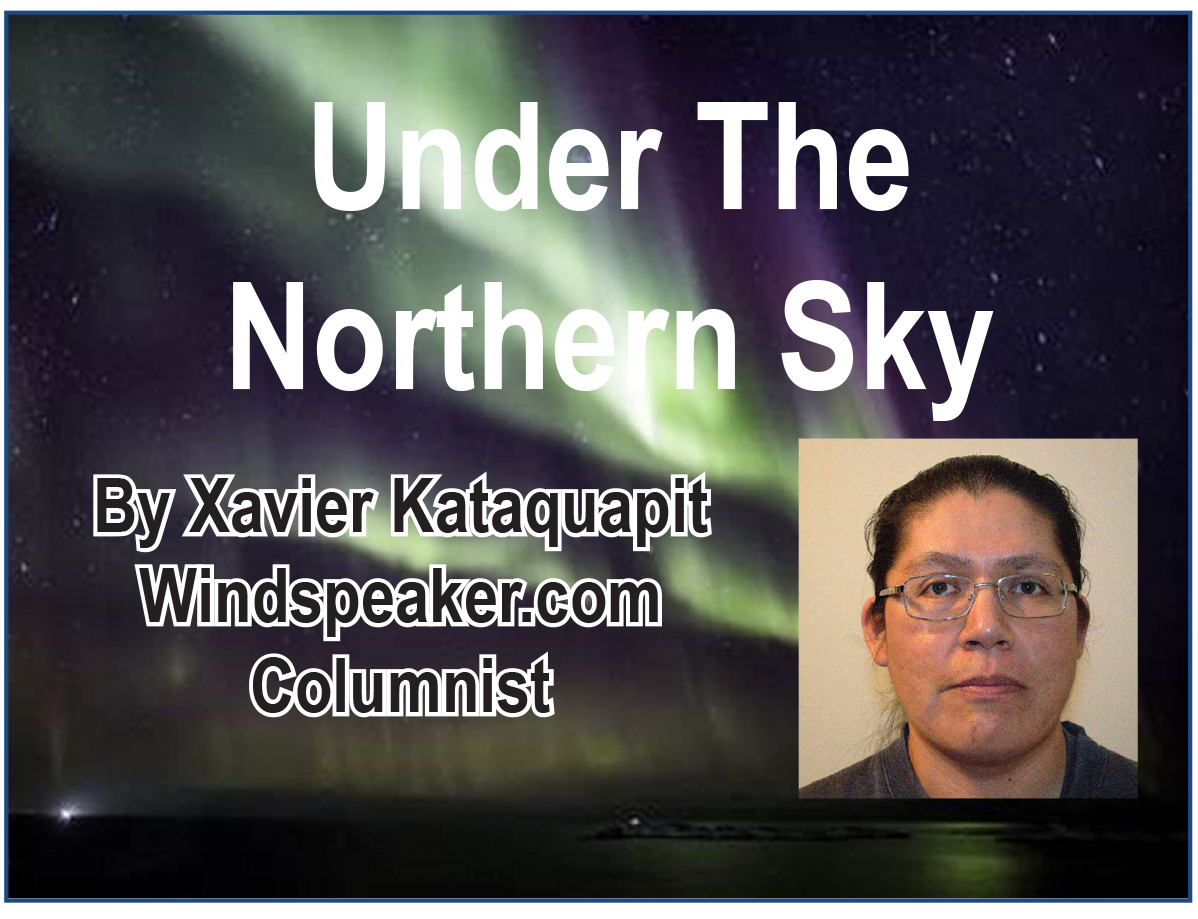
By Xavier Kataquapit
There have been so many changes over the past couple of decades for Indigenous peoples and I am amazed at how life has changed for many.
Most of the changes have been for the good and that, of course, has to do with more access to education and employment opportunities. Sadly, we have also experienced a terrible time of drug addiction in our communities that has made life difficult for a lot of people and many have died.
It is hard to believe that our communities are finally being included by resource companies in all kinds of agreements providing funds, employment and training. I see the changes in First Nations up the James Bay coast, throughout northern Ontario and right across Canada.
It is so good to see family and friends finding employment in all kinds of resource development jobs and making a good living. People are better able to provide for their families these days. They are purchasing better housing situations and their lives, in general, are much better.
A good example of success in mining is in the presentation of the 2024 Skookum Jim Award at the recent Prospectors & Developers Association of Canada conference. The award is presented annually to a recipient from an Indigenous group that has achieved within the mining industry. This year the award went to Wabun Tribal Council.
The council is headed by the executive director Jason Batise who is guided by the council’s member First Nation chiefs, including Chief Murray Ray of Flying Post First Nation, Chief Jennifer Constant of Mattagami First Nation, Chief Anita Stephens of Chapleau Ojibway First Nation, Chief Sonny Batisse of Matachewan First Nation, Chief Renae Vanbuskirk of Brunswick House First Nation and Chief Wayne Wabie of Beaverhouse First Nation.
In a way I have grown up with Wabun Tribal Council and their First Nations over more than two decades. I have seen the good work of so many chiefs, Elders and staff members over the years, starting with past historic Chief Barney Batise and then under the guidance of his son Shawn Batise who held the position of executive director for many years. Today Shawn’s brother, Jason Batise, leads the council.
When I first became acquainted with Wabun Tribal Council and the chiefs things were just beginning to develop and the communities were struggling in terms of housing, infrastructure and employment opportunities. Those were the days when Wabun and many other tribal councils had to fight to make any gains from resource development on their traditional lands.
Due to the efforts of a lot of good people and government rulings resource developers now had to consult and work with First Nations regarding any development being taken on their traditional lands. That was a huge deal.
For so many years resource development companies had been developing mines, forestry productions and hydro initiatives with no consultation or inclusion of Indigenous peoples although these major developments were on traditional lands. My ancestors all across Canada and here in northern Ontario were barely surviving while these huge corporations were making millions of dollars and, for the most part, not sharing any of that wealth, employment or benefits with my people.
At the end of these major resource development projects, my people were often left with the aftereffects of contaminated lands, deforestation, poisoned waters and the loss of animal, fish and bird life. We were left out of the benefits of these projects, yet we were the ones that dealt with the negative impacts.
Thankfully that has changed to a great degree and these days we see all kinds of resource development projects that are inclusive of Indigenous people. My people are now sought after by mining companies and other resource developers so that development can happen and in a way that benefits everyone.
There is a lot to be thankful for these days with better lives for my people, a more open society and government support for many initiatives dealing with reconciliation, compensation for harms done and more access to education. We still have a long way to go as life is far from perfect and, in particular, on remote First Nations. We are still fighting for clean water, decent food prices and improved health care.
Our leaders and chiefs, as well as Elders, are still tasked with making sure that our lands, waters and the wildlife are protected when resource development happens and that is a continuing struggle. It is up to all of us to work together to make sure that Mother Earth is treated with respect and honour so that future generations will have fresh air to breathe, clean water to drink, healthy land with trees, plant life and the beauty of our magnificent animals, birds, fish and all the creatures of our fragile and precious planet we call home.
It is amazing what we can do when working together.
